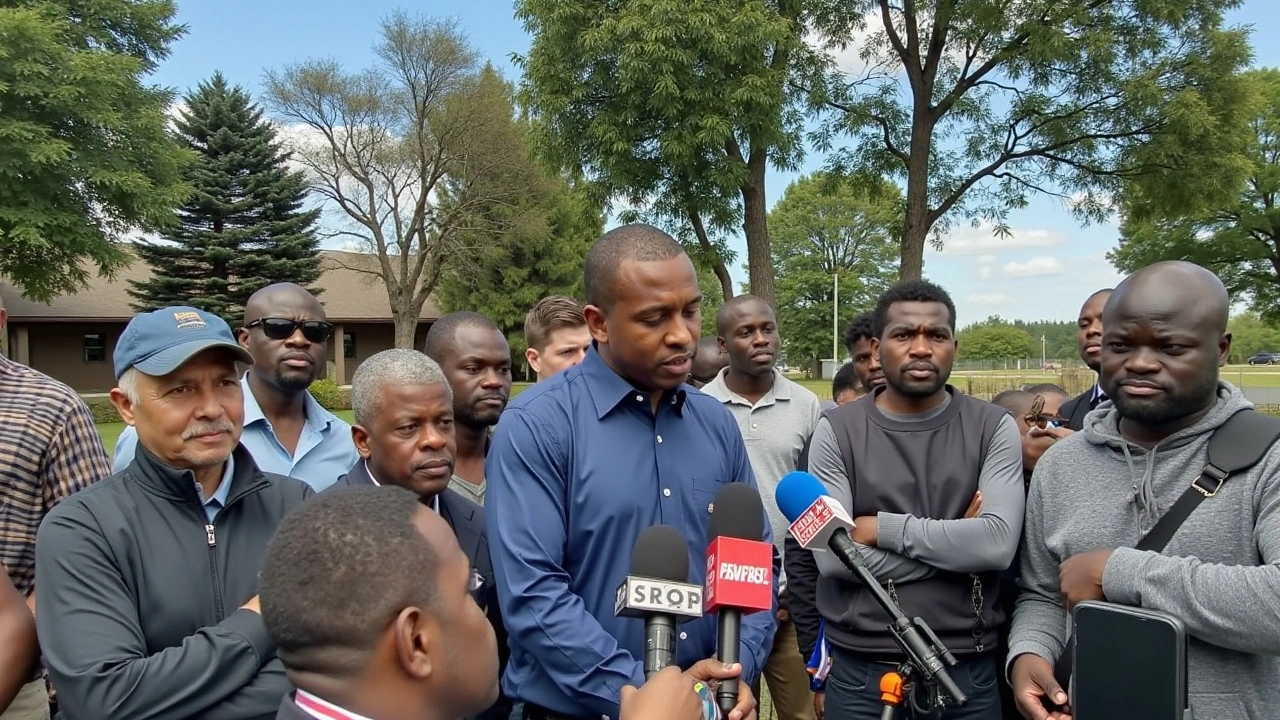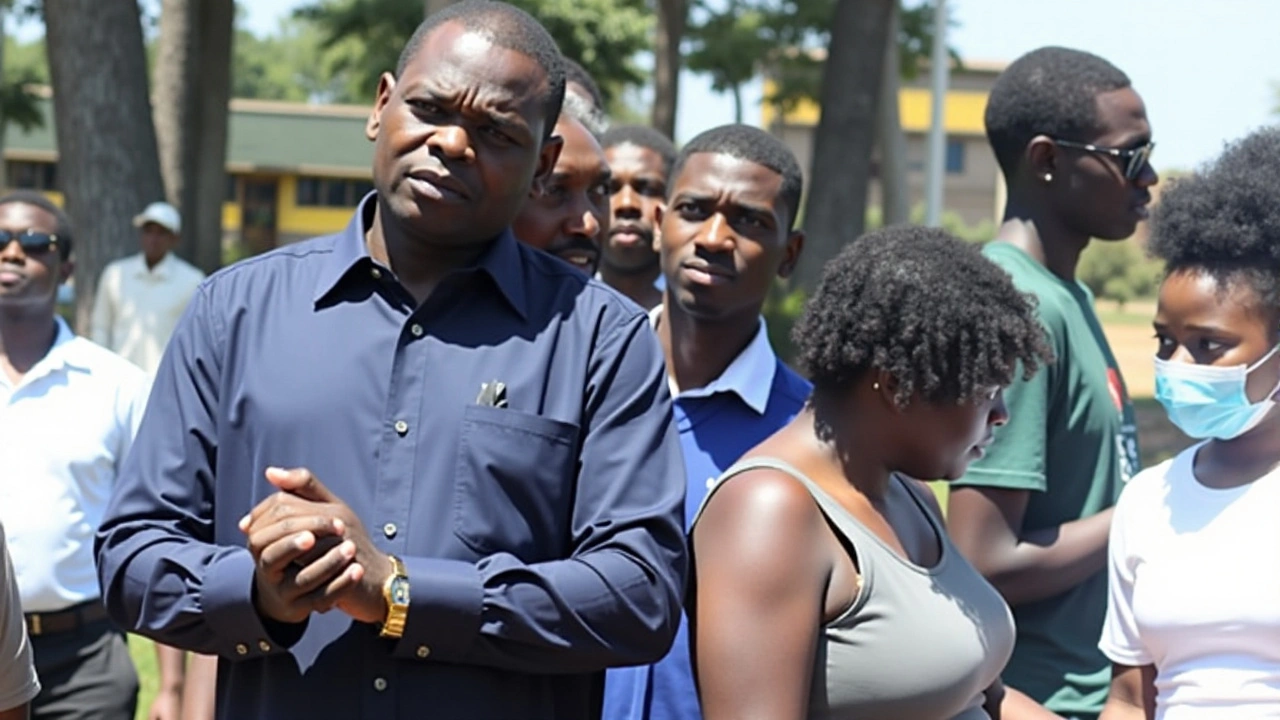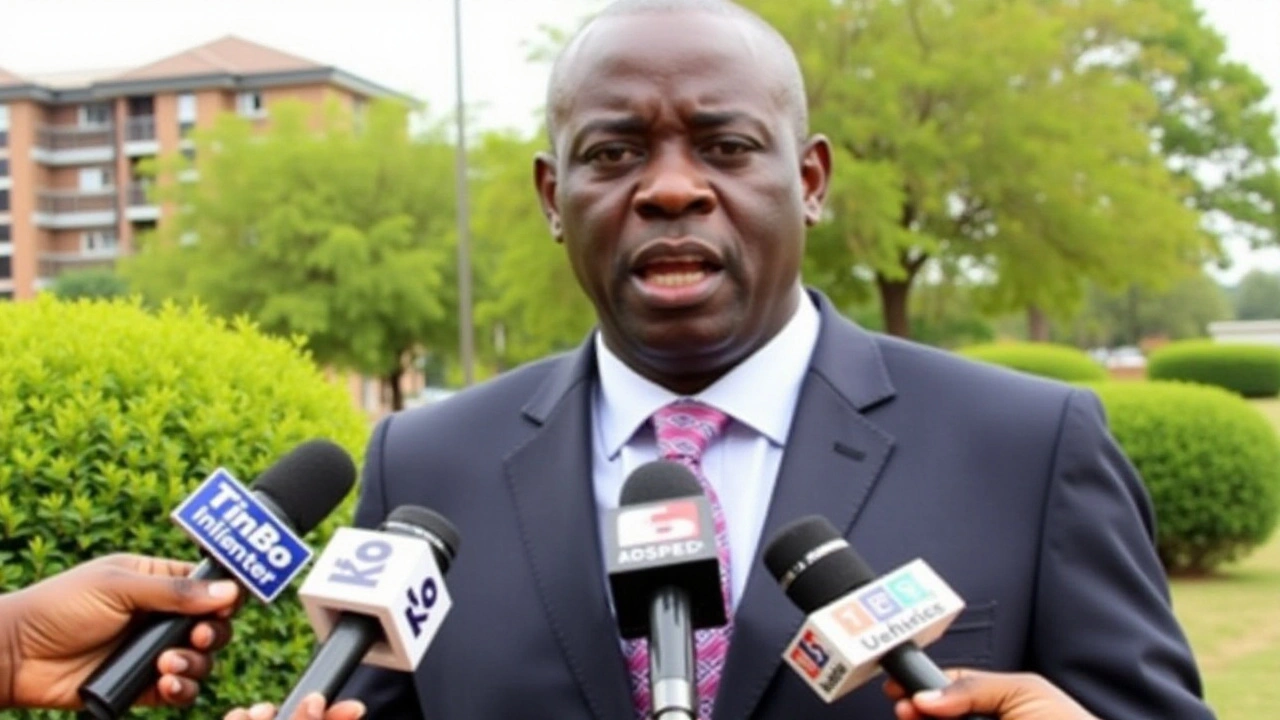CS Muturi Advocates Public Inquiry into Kenya's Growing Abduction Crisis
 Feb, 1 2025
Feb, 1 2025
CS Muturi's Urgent Call for Action on Abductions
In an intense plea for justice and transparency, Public Service Cabinet Secretary Justin Muturi has taken a bold step forward by proposing a public commission of inquiry to thoroughly examine the recent, alarming rise in abductions occurring across Kenya. This significant move comes amidst growing concern over a terrifying pattern of disappearances, including the chilling discovery of the bodies of two men at City Mortuary, reinforcing fears and demands for immediate government intervention. These men, identified as Martin Mwau and Justus Mutumwa, were part of a group of four who disappeared from Mlolongo last December, a fact that underscores the severity of the situation.
As the extent of these tragic circumstances unfolds, Muturi's demand is both a call to action and a desperate appeal for leniency and transparency from the Kenyan government. Addressing fellow citizens and government officials, Muturi underscored the critical nature of this inquiry, stressing its potential to delve into and ultimately address the root causes lying beneath these mysterious abductions. According to Muturi, ignoring this grave issue may only plunge the nation deeper into chaos and anarchy.
Muturi's Personal Experience with Abductions
Muturi's personal experience with abduction adds significant weight to his appeal. Indeed, his very own son, Leslie, was among those abducted, only to be released later, supposedly after intervention from President Ruto himself. This personal nightmare is more than just a motivator for Muturi; it has only driven him to stand firm against the transgressions inflicted upon innocent Kenyans and unearthed ills within the government. He has vowed not to remain silent and continues to publicly criticize any normalization of these heinous acts within the society.

Inertia within Law Enforcement
The Cabinet Secretary has not shied away from criticizing the efficiency of the police in handling these cases. He questioned why, with their expansive resources and capabilities, they struggle to bring the perpetrators to justice, suggesting that solving these crimes should not demand more than a few days if there is a real willingness to intervene. Furthermore, Muturi boldly addressed the faults of governmental systems that have failed their people, despite promises during the presidential campaigns to eradicate forced disappearances.
Open Inquiry: Including All Stakeholders
In an effort to ensure an inclusive approach to these investigations, Muturi has recommended a wide-ranging inquiry, one that is not limited to governmental officials but also includes stakeholders from the Law Society of Kenya, civil society groups, and religious institutions. By doing so, he seeks to assure an inclusive willpower and accountability from all facets of the Kenyan society. He argues passionately that this inquiry should strive for a conclusive understanding of what drives these abductions and move toward ending this painful chapter for Kenya once and for all.
The revelations surrounding the harsh reality of these events echo deeply in the corridors of power and in the daily lives of everyday Kenyans. As citizens grapple with this distressing reality, the citizens demand a return to safety and accountability from those pledged to protect them. The identification and subsequent anger over the deaths of Mwau and Mutumwa have only intensified the clamor for swift action and reassurance from those in power.

The Public's Urgent Demand for Justice
Amidst a broader societal unrest and increased public consciousness about these issues, Muturi's proposition echoes a familiar refrain heard all across the country: When will justice become a tangible reality for the wronged and the lost? Kenyans look for assurance that their voices will not be ignored and that such violence ceases. The call for a commission becomes a symbolic bridge between desperate hope and an urgent demand for clear, decisive action.
Conclusion
The essence of Justin Muturi’s message is simple yet deeply urgent: for the safety of all Kenyans, the time for action is now. The enactment of a holistic inquiry involves addressing the root causes and ensuring justice for the fallen, past, and future victims. As the nation listens, watches, and waits, it falls upon leaders to steer the ship away from turmoil and towards the peace all citizens deserve.

Alastair Moreton
February 1, 2025 AT 05:10Sounds like the government finally decided to stop pretending everything's fine.
Surya Shrestha
February 1, 2025 AT 23:46One must concede, albeit reluctantly, that the proliferation of abductions within Kenya constitutes a perturbing anomaly; the state's purported commitment to safeguarding its citizenry appears, regrettably, to be more rhetorical than operational. Moreover, the juxtaposition of ostensible legislative frameworks against the palpable inertia manifested by law enforcement agencies engenders a disquieting paradox. It is incumbent upon the judiciary, the legislature, and the executive to engage in a concerted, transparent investigation, lest the erosion of public trust become irreversible. The proposed commission, if endowed with genuine autonomy, could elucidate the systemic deficiencies that have hitherto been obfuscated. Consequently, a meticulous, multi‑stakeholder approach is indispensable for remedial efficacy.
Rahul kumar
February 1, 2025 AT 23:48Totally get where you're coming from – the whole thing feels like a massive cover‑up, and the police just aren't getting their act together. Honestly, the families are left hanging and the whole system looks like a broken record. We can definitely push for a real deep‑dive, maybe bring in some independent investigators who actually care. It's crazy how quickly rumors turn into fear, and that fear spreads faster than any official statement. Definately, we need more transparency and less political spin. If we keep shouting, maybe the powers that be will finally listen. Thx for laying it out so clearly.
mary oconnell
February 2, 2025 AT 13:40Ah, the classic bureaucratic ballet – where every stakeholder twirls in a vortex of procedural complacency, wielding buzzwords like “accountability” and “holistic inquiry” as if they were magic talismans. One can almost hear the symphony of inter‑agency coordination crescendoing into a crescendo of…nothing. The lexicon of reform is rich, yet the substrate remains alarmingly porous. It's almost poetic how the rhetoric outpaces the actual remedial mechanisms, leaving victims stranded in a sea of policy‑laden platitudes. In short, the whole affair smacks of performative governance.
Michael Laffitte
February 2, 2025 AT 13:43Honestly, I feel you. It's like watching a drama where everyone has a script but nobody remembers their lines. Still, we can rally together, push the narrative forward, and maybe turn that performative act into real action. If we keep the conversation alive, the pressure might finally crack the façade.
sahil jain
February 3, 2025 AT 17:26The situation is dire, and we need concrete steps now 🙂. A commission that actually has teeth could change the game, especially if civil society gets a seat at the table. Let's keep the momentum rolling.
Bruce Moncrieff
February 3, 2025 AT 17:35This is exactly the kind of moment where collective will can shift the tide of history.
We have seen too many families ripped apart while officials hide behind endless committees.
A genuine probe must cut through the layers of bureaucracy with ruthless clarity.
It should subpoena every relevant agency, from the police hierarchy to the intelligence services.
No stone should be left unturned, no testimony dismissed as peripheral.
Transparency must be the core principle, broadcast live for the entire nation to witness.
The victims' voices should dominate every session, reminding policymakers of the human cost.
Funding must be guarded against political interference, ensuring independence.
International observers could add credibility, showing that Kenya is serious about reform.
Civil society groups can provide on‑the‑ground data that official reports often miss.
Religious leaders, too, can offer moral guidance and help heal the communal wounds.
If we fail to act now, the cycle of fear will only deepen, eroding trust forever.
The youth, especially, deserve a safe environment to pursue education and dreams.
Let us channel our frustration into constructive pressure, demanding milestones and deadlines.
In the end, it is the relentless persistence of ordinary citizens that will force the system to reckon with its failures.